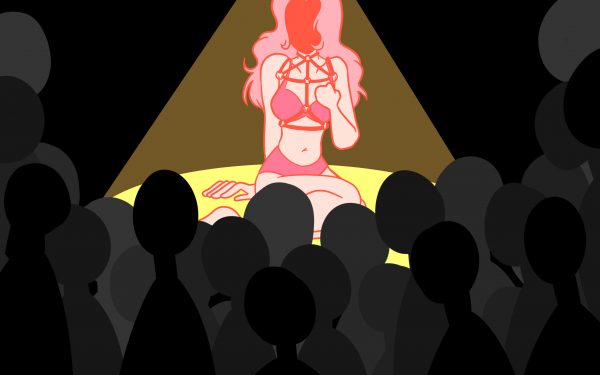Anonymity and Ethics in Video Games
University of the Streets Hosts Video Game Culture Discussion
Gamers, under the protection and comfort of anonymity, will often do things in video games that they would never do in real life.
Video game behaviour says a lot about us as individuals and as a society. This idea launched the conversation at the University of the Streets Café’s 2015 public discussions series.
The discussion, part of a variety of open conversations held weekly from January to April, took place at the Atwater Library in Westmount last Thursday night.
“I’ve been interested in how and why people play video games for the past 10 years,” said guest speaker Mia Consalvo, the Canada Research Chair in game studies and design. Consalvo is a specialist in game studies and gameplay culture.
Those that specialize in game studies often refer to the “magic circle”: the idea that in games, the normal rules of life don’t apply.
“The best example is the boxing ring: you step into the ring and it’s perfectly acceptable to punch somebody in the face,” Consalvo said. “But when we step outside of the ring and punch somebody in the face, we get arrested.”
The boxing ring analogy explains why gamers don’t hold back from acts of violence once they’re in the game. That culture of violence was brought up often throughout the event.
Some attendees questioned the level of influence games have on children. Some believe that after six or seven years old, humans can generally make the distinction between virtual worlds and real-life situations.
The talk also outlined the fact that video games occupy a large and important place in the lives today’s youth. One may argue that video games have asserted their presence for over 30 years now, but today’s games are much more complex, engaging and immersive.
Many new games these days allow the player to choose between good and evil, ultimately affecting the outcome of the game.
“Do you kick the puppy or do you save the puppy?” said Consalvo. “In one of my undergraduate classes, I had my students do a survey among their friends, and we found out that almost nine out of 10 will make the choice to be good.
“Most people want to be altruistic and pure,” she said.
Others in the audience brought up the multi-faceted, multi-contextual nature of games. There’s good and bad involvement in all of them and there appears to be no sense of community.
“Whenever I talk about this subject, whether it’s in class or in a general setting like this, there’s always a lot of discussion,” Consalvo said about the event turnout. “People have a lot of questions—both who play games and who don’t play games—about what effects they have on us.
“I don’t think there’s an easy way to say X game will have Y effect on you, video games are a part of our lives, and it’s silly to say that they’re just entertainment or that they don’t mean anything,” she said.

_900_675_90.jpeg)


_600_375_90_s_c1.jpg)


